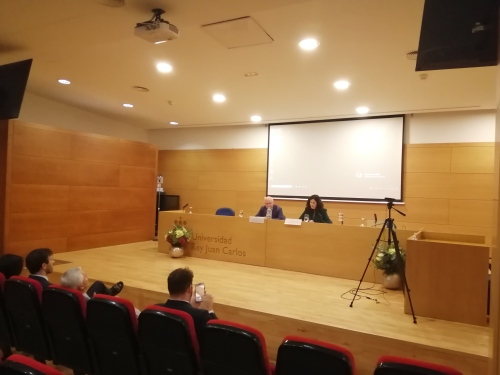CONFERENCE ON THE LAW OF PARTIES ORGANIZED BY THE UNIVERSIDAD REY JUAN CARLOS

On October 7, the Faculty of Legal and Social Sciences of the URJC, on its Vicálvaro campus, held a conference dedicated to academic reflection on the consequences and assumptions of Organic Law 6/2002, of June 27. of Political Parties.
On the occasion of the XX anniversary of its entry into force, the University wanted to carry out a rigorous observation of what this rule meant for our legal system, addressing questions that have been brewing over the last twenty years.
To inaugurate the conference, Javier Zarzalejos was invited, who spoke on “the PP-PSOE agreements in the Party Law”, from his experience and personal memory as Secretary General of the Presidency of the Government during the years of the political impulse that led to the promulgation of the law.
Zarzalejos placed the Pact for Liberties and Against Terrorism in its political and historical context, as a response to the nationalist front hatched in Estella between ETA and Basque nationalism as a whole, after the kidnapping and murder of Miguel Ángel Blanco.
He placed in this context the reality of an ETA operationally exhausted from the year 2002, as a consequence of the firmness of the Basque constitutionalist movement, police efficiency and international cooperation. He reviewed the negotiations between the main national parties at that time and detailed the legislative arsenal that led to the Pact. The star measure of which was the Law on Parties, which legally sanctioned what the European Court of Human Rights later defined as an “imperative social need”, by outlawing the political wing of ETA terrorism. The introduction of criteria of “militant democracy” in our constitutional order implied in the assumption of European jurisprudence was also a reason for analysis in his intervention.
Zarzalejos reviewed the political and legal difficulties that had to be overcome to achieve what he defined as one of the greatest democratic achievements in our recent history. After his presentation, he responded to the questions and interventions of the public, engaging in a discussion of interest on the lessons that can be used for today in the Basque Country and in Spain as a whole.
